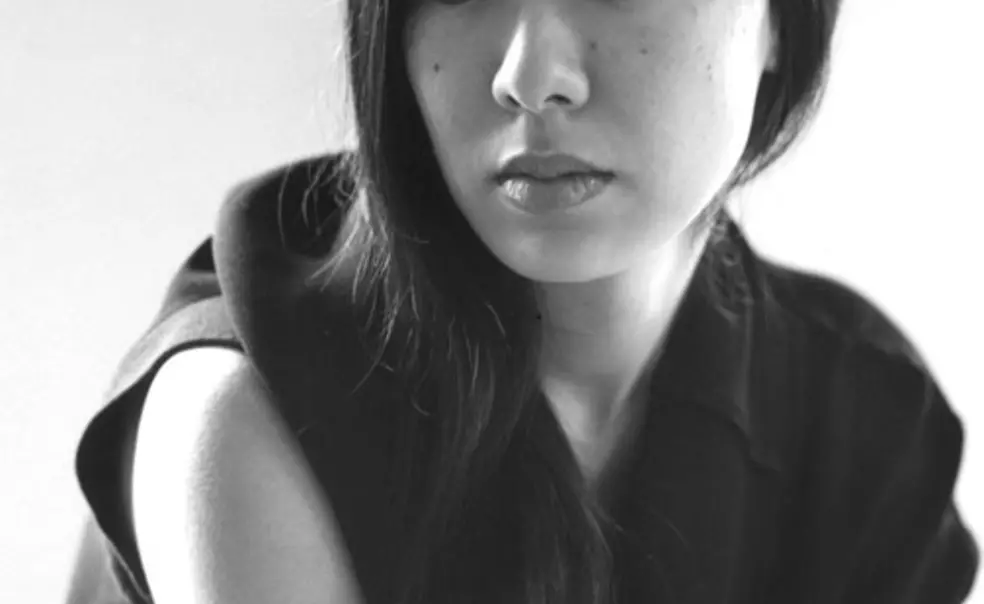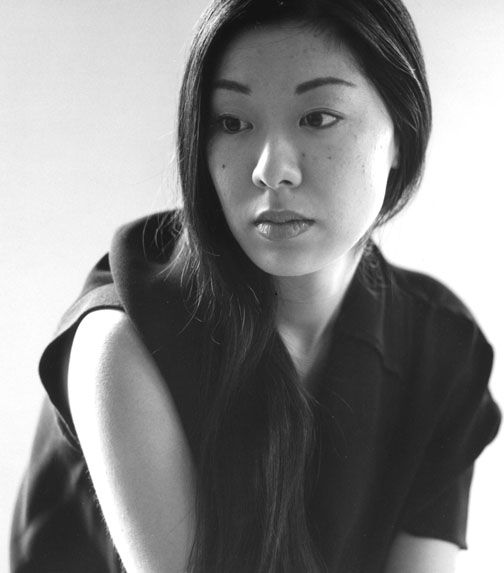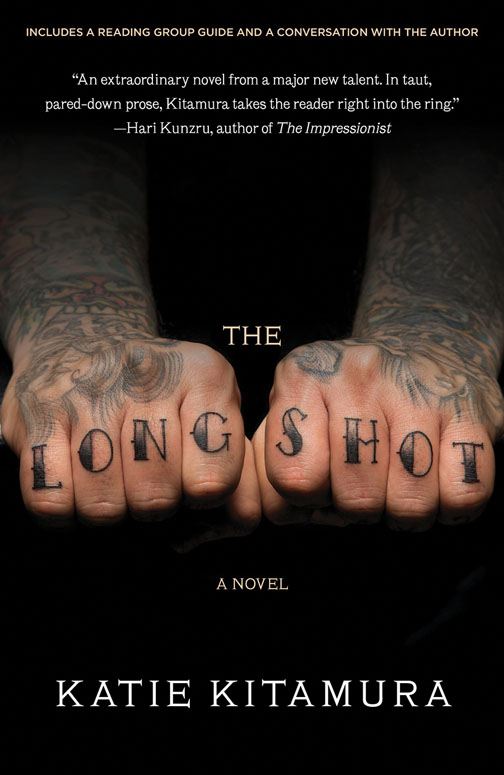A petite former ballet dancer with a Ph.D. in American literature, Katie Kitamura ’99 is the last person you would expect to write a novel about the world of mixed martial arts, known as “ultimate fighting,” in which people kick, choke, knee, wrestle, box, and draw blood from their opponents in explosive, brief encounters.
Some matches last just 30 seconds, and it’s that intensity — both physical and emotional — that she captures in her taut debut novel, The Long Shot (Free Press, August), which focuses on a fighter named Cal and his loyal longtime coach, Riley, in the three days leading up to Cal’s rematch with the legendary fighter Rivera in Tijuana, Mexico. Kitamura leaves out the characters’ back stories — to create the rhythm and experience of watching an actual fight — and focuses on Cal and Riley as they head into what both privately suspect will be a disaster.
Kitamura became fascinated with the sport when her brother introduced her to it in Japan, where mixed martial arts enjoys the mainstream popularity that baseball and basketball have in the United States. Since then she’s been to fights all over the world — many with her brother, a tattoo artist who works on fighters.
“I wanted to see if I could capture some of that anxiety and intensity that I personally feel when I’m watching a fight,” says Kitamura, whose descriptions of the fights have been called “brutal yet beautiful” by a reviewer.
Kitamura’s style has been compared to Hemingway’s. She describes writing from a man’s point of view as “a way of dressing up in men’s clothes.” She picked up the rhythm of the dialogue by socializing with fighters — going to dinner with them the night before a fight or spending time at the gym. But the personal side of the story — that is, the psychological aspect of being an athlete and relating to a coach — is hers. Kitamura, who trained six hours a day through high school and was headed into the world of professional dance until an injury disrupted her plans, draws on her own experience. “So much of [the novel] is about expectation and disappointment and not having the career you thought you would have,” she says.
Both Cal and Riley understand that this is their last chance to hold onto their careers. Despite his broken ribs and nose, bruises all over his legs, and other injuries, Cal refuses to give up — and Riley realizes he must “watch, and keep watching, until it was over. He hadn’t known it, but that had always been the pledge,” Kitamura writes. Cal’s goal was to last to the end and not get knocked out. He’s done that, but it’s not clear if he will live or die.
As for Kitamura, Booklist called her “a genuine discovery.”














No responses yet